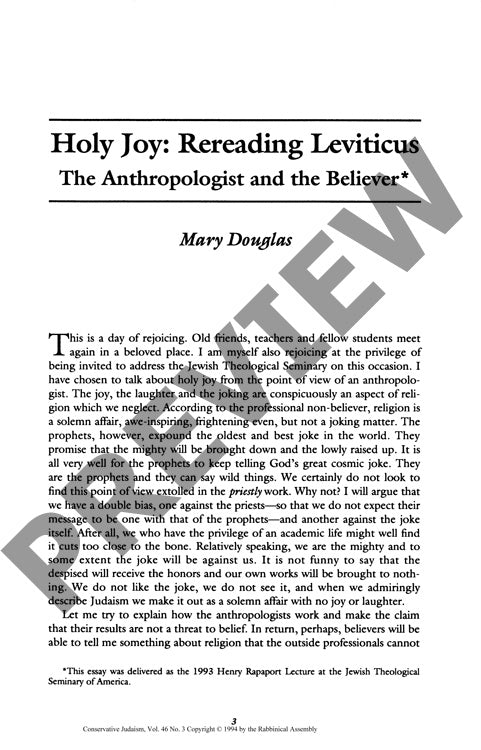Holy Joy Rereading Leviticus the Anthrop
Couldn't load pickup availability
Ancient Jewish dietary laws - long dismissed as primitive taboos - emerge as a sophisticated ethical system when viewed through modern anthropological methods. Biblical scholars have traditionally privileged prophetic religious expression over priestly ritual, creating an artificial divide between spontaneous spirituality and formal observance. Yet a careful reexamination of Leviticus reveals that its food restrictions operate as a complex symbolic framework promoting social justice. The forbidden animals, characterized by bodily "blemishes" like irregular limbs or disproportionate features, function as potent emblems of society's marginalized members - the poor, oppressed, and outcast. By making each meal an encounter with these symbols, the dietary laws transform eating into a ritualized commitment to righteous conduct and divine mercy. This interpretation, grounded in anthropological principles of religious coherence, demonstrates how Leviticus's priestly editors wove ritual practice and ethical imperatives into a unified theological vision. Rather than contradicting prophetic traditions, these laws reinforce the same cosmic principle that "the mighty will be brought down and the lowly raised up." The analysis suggests that anthropological methods, far from undermining religious faith, can illuminate the profound internal logic of religious systems, revealing how ritual and ethics work in concert to express divine righteousness.

More Information
-
Physical Description
-
Publication Information
Published 1994
ISBN
-
Publication Credits
Mary Douglas

